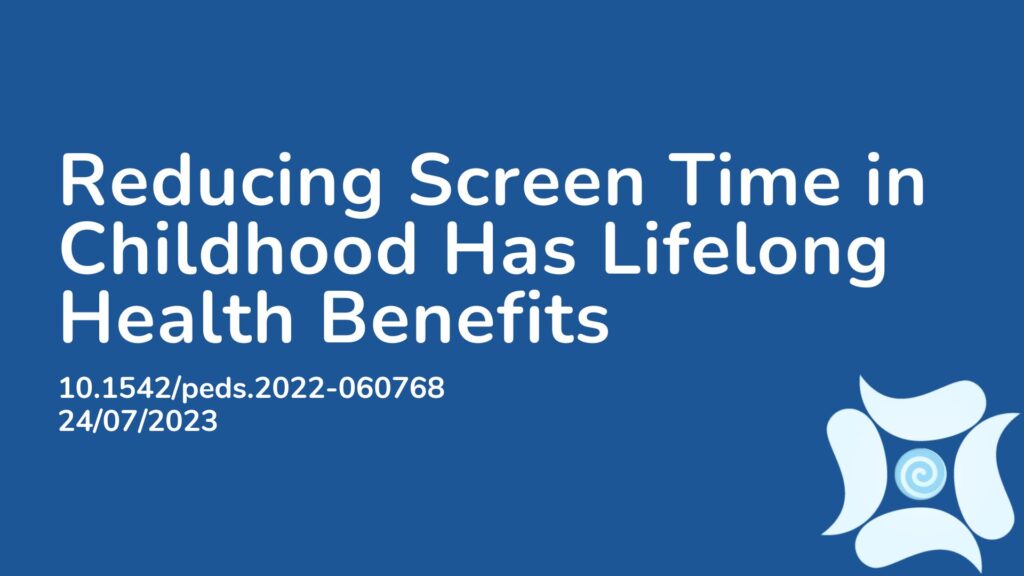Summary:
Sedentary lifestyles such as ones that include excessive television viewing increase the risk of sickness and death. Recent data shows that young people spend much more time being sedentary and watching excessive television compared with generations before them. This trend has been exacerbated by the global pandemic. This study looked at the long term impacts of a sedentary lifestyle as a young person aged between 5 and 15 and found that children in this age group who watch excessive amounts of television were more likely to develop health problems as an adult, such as high blood pressure, increased body fat, heart disease, diabetes and stroke. This study stresses that interventions to reduce screen time for young people will have lasting health benefits.
Abstract:
BACKGROUND: Excessive sedentary behaviors, such as television viewing or other screen time, may have adverse metabolic effects. We hypothesized that television viewing time in childhood would be associated with the risk of metabolic syndrome at 45 years of age. METHODS: We studied a population-based birth cohort born in Dunedin, New Zealand in 1972 and 1973. Parent- and self-reported weekday television viewing times were recorded at ages 5, 7, 9, 11, 13, 15, and 32 years. The primary outcome was metabolic syndrome at age 45 years, defined as 3 or more of: high glycated hemoglobin; high waist circumference; high blood triglyceride; low high-density lipoprotein cholesterol; and high blood pressure. Reported television viewing time and metabolic syndrome data were available for 870 (87%) of 997 surviving participants. RESULTS: Mean television viewing time between ages 5 and 15 years was associated with metabolic syndrome at 45 years of age. This association persisted after adjusting for sex, socioeconomic status, and BMI at age 5 (odds ratio: 1.30; 95% confidence interval: 1.08 to 1.58; P = .006) and after further adjustment for adult television viewing (odds ratio: 1.26; 95% confidence interval: 1.03 to 1.54; P = .026). Childhood television viewing was also associated with lower cardiorespiratory fitness and higher BMI at 45 years of age. CONCLUSIONS: Time spent watching television during childhood and adolescence is associated with the risk of metabolic syndrome in mid-adulthood. Interventions to reduce screen time for children and young people may have long-lasting benefits for health.
Article Publication Date: 24/07/2023
DOI: 10.1542/peds.2022-060768



